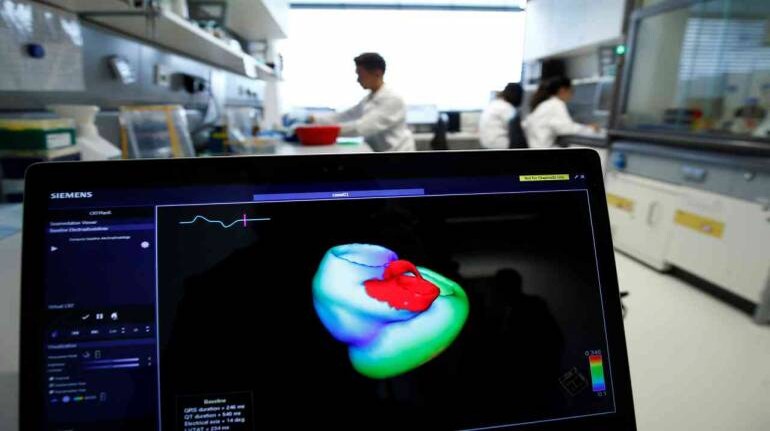



Despite the economic slowdown and the COVID-19 pandemic shock, heath technology or HealthTech remains a significant short- to medium-term bet. The Government of India has been leveraging the potential of digital healthcare and initiated its journey by introducing the Aarogya Setu app, revising the telemedicine practice guidelines, and promoting both the National eHealth Authority and e-Sanjeevani.
Indian startups such as Practo, 1mg, and Cure.fit, partnered with iSpirt, an Indian software products industry think-tank, to design a telemedicine platform that aims to build on Aarogya Setu.
Factors such as increased Internet penetration, DISHA (Digital Information Security in Healthcare Act), and Ayushman Bharat are expected to bring about a significant shift in the functioning of healthcare and promote digital transformation in India.
HealthTech’s Silver LiningHealthTech stands resilient to the COVID-19 crisis as its growth drivers continue to remain strong. With social distancing and lockdown rules in place, one of the drivers for growth is the service provided by the eHealth platforms that allow customers to avail online consultations, treatments, diagnostic tests, and have medicines delivered to their homes. Moreover, people — not only in metros or tier 1 cities but also in tier 2 and 3 cities — are increasingly becoming aware and pushing towards innovative digital solutions, thus driving a shift in healthcare and how people are consuming the services.
The COVID-19 pandemic has had a favourable impact on ePharmacies. Continued operations during the lockdowns, coupled with a high demand for medicines, drove positive consumer behaviour. In the next 6-12 months, we will likely see increased adoption of e-pharmacy services, and to retain the customers after the impact of the crisis, companies would need to strengthen their supply chain, shift towards <1-day deliveries, and partner with hospitals and care centres, thus forming a new integrated model for ePharma.
Additionally, banking on this shift in the consumer behaviour and a strong aversion towards seeking hospital-based care during a pandemic, HealthTech companies like Portea are now opening doors towards a more innovative remote tech-based healthcare — for instance, carrying out chemotherapy administration at home; and mfine is scaling up its telemedicine services.
This change in how people are approaching and consuming healthcare services will bring a positive shift in the wearables and diagnostics space as well. One of the key challenges while treating patients through telemedicine is of monitoring patient’s vitals (such as blood pressure, heart rate variability (HRV), etc.) and with the lack of required equipment and facilities at home, going forward, remote monitoring will significantly change how patient self-examination takes place — further strengthening the adoption of wearables and diagnostics, and thus remote/contactless care.
The Road AheadCOVID-19 has about doubled the growth in the number of online consultations. The government’s revised telemedicine guidelines (by the Medical Council of India and the NITI Aayog) ease up the regulations related to remote consultation, which further continue to fuel the demand. With many services now going online, players in the personal health management space are innovating with new products to keep their customers engaged.
They are offering many services such as live wellness sessions for free, but in the coming 6-12 months, both tele-consultation and personal health management platforms will need to monetise the freemium services to lure in the customers and to sustain them (some are already monetising live classes). Additionally, a constant connection with their customers will help avoid churn.
Presently, the adoption of Healthcare IT and electronic health records (EHRs) is expected to take a hit, as acquiring and servicing doctors becomes difficult, due to the constrained bandwidth during a lockdown. However, we can expect to see a full recovery as cash flows return to normal in about a year’s time, and stakeholders continue their journey of adopting EHRs.
Artificial Intelligence, machine learning, Internet of Things solutions are gaining traction as they are being leveraged to fight the outbreak. One such example is of Aster DM, where AI-based mental wellness medical-grade chat-bots are being used to help people suffering from behavioural psychiatric disorders such as anxiety and stress. Additionally, AI-backed radiological diagnostics are being deployed to assess and diagnose COVID-19 associated pneumonia. The demand for AI/ML, IoT, and deep tech solutions will continue to increase further as the focus will shift towards making healthcare more efficient, value-driven, and patient-centric, once lockdown restrictions are entirely lifted.
With no vaccine, widespread immunity to the disease, and a high resurgence probability, we do not know for certain when this pandemic will end. However, what we know is that it offers a silver lining for eHealth platforms — to embrace change, join forces, and to innovate, creating real value in the healthcare ecosystem.
Aryaman Tandon is Director, Praxis Global Alliance. Views are personal.
Discover the latest Business News, Sensex, and Nifty updates. Obtain Personal Finance insights, tax queries, and expert opinions on Moneycontrol or download the Moneycontrol App to stay updated!
Find the best of Al News in one place, specially curated for you every weekend.
Stay on top of the latest tech trends and biggest startup news.